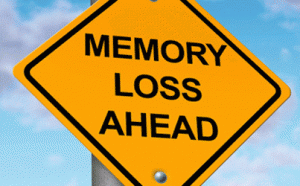The studies, articles and information I have recently discovered on the Internet over the last few weeks linking memory loss and perimenopause have been fascinating. And, self-prophetic. I do not feel so crazy or scared. I feel relieved that I’m not alone. Every day when I have periods of brain fog and short-term memory loss seem explainable.
It appears that there are several suspected causes of brain fog and short-term memory loss during perimenopause. Thyroid dysfunction, particularly low functioning thyroid, or hypothyroidism, adrenal fatigue, unbalanced hormones (primarily low estrogen levels), stress, insomnia and a combination of all of the above can contribute to brain fog and short-term memory loss.
The challenge becomes figuring out where to start when trying to address your personal issues. For me, it was addressing my adrenal fatigue and stress. I suspect there are also hormonal imbalances, but because of my recent health issues (blood clots in my lungs)–I will not treat my hormonal imbalance until I am off the blood thinner medication. In menopause, all of these conditions have a direct impact on (among many other things) our brain neurotransmitters dopamine, serotonin and GABA. These neurotransmitters help modulate mood, cognitive function (thinking and memory) and enable us to manage stress.
Studies show that low estrogen levels, these neurotransmitters become out of balance and can result in mood disorders (depression and mood swings), an inability to think clearly (brain fog) and short-term memory issues as well. Insomnia and stress, two very common symptom of perimenopause can both complicate the issues even further. Adrenal fatigue and thyroid dysfunction, two very common secondary issues for women during perimenopause, are also known to contribute to brain fog and short-term memory issues.
So, what is a girl to do? I am determined to not be teased about my memory as I get older. Maybe it’s not possible. But, I’m working hard to use some of the tools I’ve learned about to deal with my personal memory issues. Making lists is #1. I write down everything now. This helps immensely because writing it down seems to help alleviate some of my short-term memory issues. And, if I forget something – well, I have it written down. I’ve become a consummate note taker.
My main point—you are not alone. Don’t give up! Fight back. Make lists and take good notes. And, deal with your issues. Every contributing factor to memory loss and brain fog most likely can be dealt with, so partner with your healthcare provider to find answers and seek treatment.
Don’t forget. Put it on your list of things to do today!
Steph



Leave a Reply